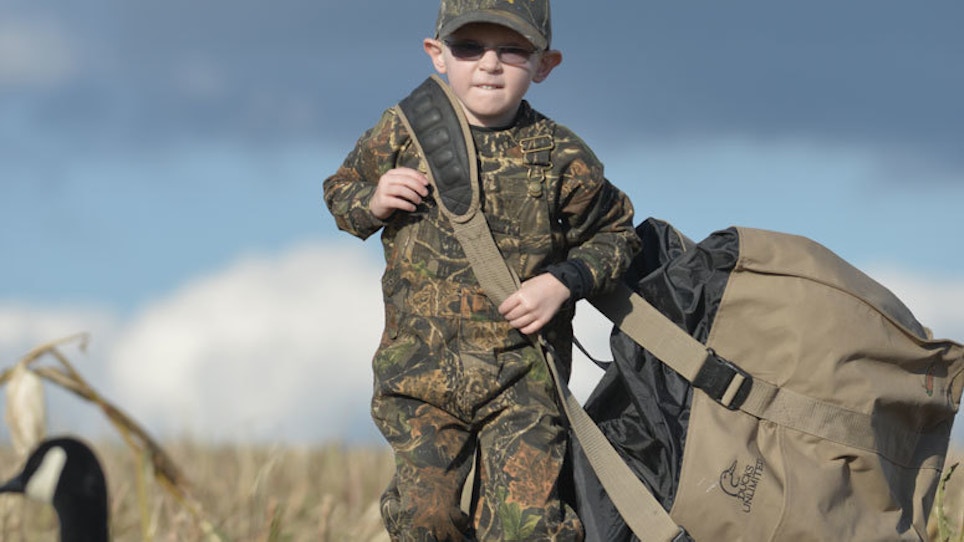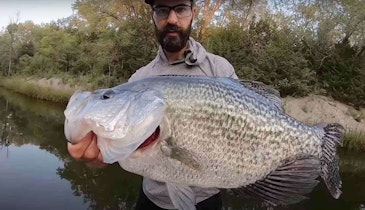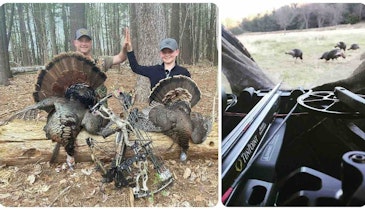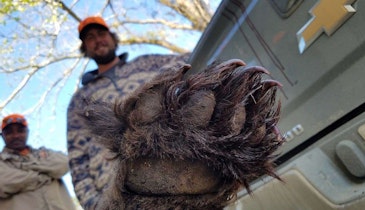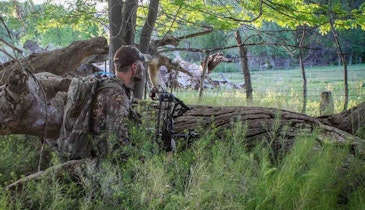Hunting for free on a generous farmer’s land and enjoying the sport with a group of like-minded friends are things that we often take for granted. The hard truth is that these things are volatile and can disappear instantly when a bad decision or lack of respect causes a lapse in judgment. While some things are out of our control, the good news is that ensuring the things under our control don’t affect these relationships is a simple task. Just remember what you learned in kindergarten. While those childhood teachings might sound rather basic and unfitting for an adult, in actuality these same life rules are equally important in nearly all facets of life, the duck blind included.
1. Clean Up After Yourself
We all remember the days of being told repetitively to throw away your garbage, clean off your plate and clean up your room. As an adult, these same rules apply to a workplace and your home, but why is it that we see litter and garbage strewn around in the woods and along the highway? As a whole, most people are proud of the environment they live in and do their best to make sure they do their part to maintain a healthy space. While this policy is important for everyday life, it is increasingly important when you’re using another person’s land for your own enjoyment. In the most simplistic of terms, the old saying “leave things as you found them” is of the utmost importance to ensure that open hunting areas remain open, your permission is not removed, and season after season you can return to a happy farmer that grants permission without a second thought.
While this all sounds trivial, the fact is that every year individuals are kicked off of farms for leaving trash or destroying fields, barns are rained with shot, and subsequently lands become posted. In all of these instances the common ingredient that was overlooked was respect. Respect isn’t instantly given, but it can be easily earned. To get this respect, you have to show respect to the landowner the moment you pull into their driveway. From there, pick up your empty hulls and your expelled wads, don’t drive in soft fields or any field without asking permission first, and pass up on shots that infringe on the safe zone around buildings. These things certainly sound like simple, sound policies, but the unfortunate reality is that not everyone remembers the little things — and consequently they hurt not only themselves, but also the more well-mannered hunters in the area.
2. Tie Your Own Shoes
Having a youngster myself, I can attest to how difficult it is to get over this hurdle. Kids like to have things done for them, and it’s often easier to do it for them rather than wait the extra five minutes to get past the tantrum. As adults it is just as easy to fall into the same trap of letting someone else do the work and then reaping their rewards — right or wrong, we have all done it. But after too many years or seasons of dependence, said freeloader finds themself on the outside looking in with no place to hunt opening morning.
Just pull your own weight. This doesn’t mean you have to find every field or buy mountains of decoys and gear, it just means that you need to be an equal. Scout when you can, do your homework, and bring something to the table on every hunt. Every person has an investment into waterfowl both monetarily and physically, but as soon as someone doesn’t appear to have this same team investment as the rest of the group, they are often voted out and left wondering what happened.
3. Be Nice To Others
Don’t push or shove, don’t hit, and don’t say mean things. These three rules start the moral foundation in the early stages of child development and have meaning throughout our entire life. Unfortunately, despite being drilled with these manners from the time we become responsible for our own actions, as we grow older they can be easily overlooked while never being forgotten.
Things like talking behind each other’s back, arguing over metal bands, or being disrespectful are the fastest ways to break up a tight group. While there are certainly instances where good-hearted ribbing is all part of the fun, just make sure it doesn’t get out of hand. The great thing about people is that we are all different. With that comes the distinction that not everyone will get the joke, be interested in being a part of a particular behavior, or be willing to take the same risk. These aren’t negatives, in fact, they are absolute positives and are the differences that groups need to be diverse and successful. If everyone has the good manners to not step over the line, friendships will last longer and every outing will be more enjoyable.
4. Study Now, Reap The Rewards Later
 Study hard in high school and college and be rewarded — that is what we are taught. Hard workers become more successful, and the more you do, the more you get. This doesn’t apply just for money or wealth; it applies to everything in life, including waterfowl hunting. The most successful waterfowlers do as much as their finances and family life allow to be successful. They scout harder, go the extra mile, and take the risk in order to reap the reward.
Study hard in high school and college and be rewarded — that is what we are taught. Hard workers become more successful, and the more you do, the more you get. This doesn’t apply just for money or wealth; it applies to everything in life, including waterfowl hunting. The most successful waterfowlers do as much as their finances and family life allow to be successful. They scout harder, go the extra mile, and take the risk in order to reap the reward.
Scouting is something that some hunters must take more seriously than others. We don’t all live in a waterfowl Mecca, making scouting the only way to stay on the birds day after day. By doing due diligence to scout and even forgoing one hunt on Saturday for a better hunt on Sunday, the reward can be maximized. While it’s hard to risk one day of hunting when you might only get the weekends to hunt, by using the time to study, a hunter has done the best to make sure each and every hunt will not only be better, but much more rewarding.
5. Remember The Golden Rule
Luke 6:31: “Do unto others as you would have them do unto you” is a very bold and meaningful Biblical verse that is fitting to every part of life. Regardless of your religious beliefs, this is the absolute definition of manners regardless of what the dictionary says. If every hunter would only do the things that they would want done to them, their property, and their friends during every outing, the fist fights in the parking lot, at a boat ramp, in a goose field, or on a refuge hunting area would stop.
If every hunter came into the season considering these basic kindergarten lessons as a baseline for their actions, things would be less confrontational and more enjoyable. It might sound childish on the surface, but we have all done some rather childish things while hunting that we regret, myself included, that could have been easily avoided. Let’s all make sure we don’t create more regrets in the future, even if we have to relearn something we were taught decades ago.
